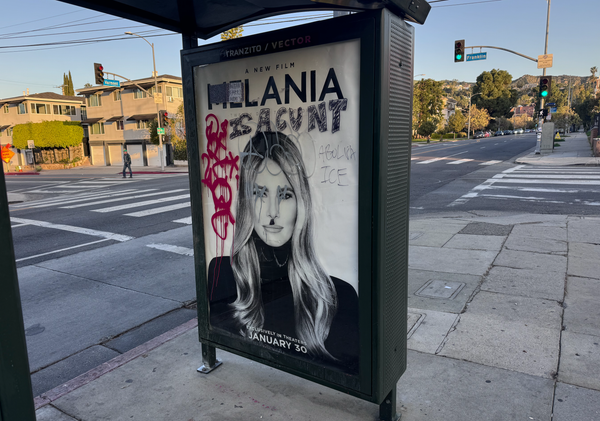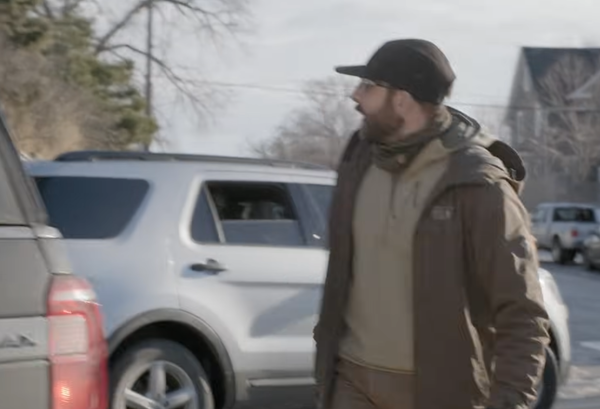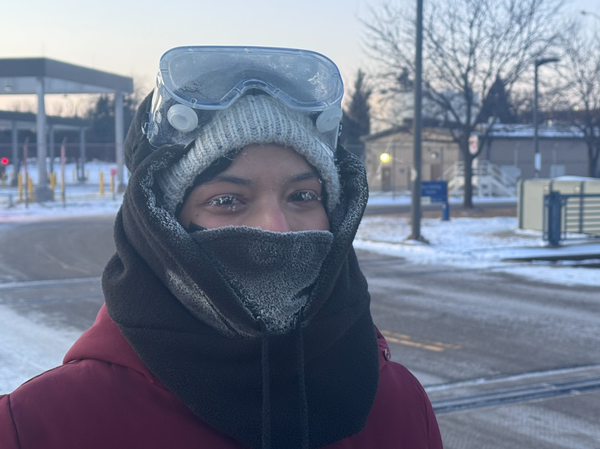Episode 3: Make up something fucking new, so that I can actually give a shit!
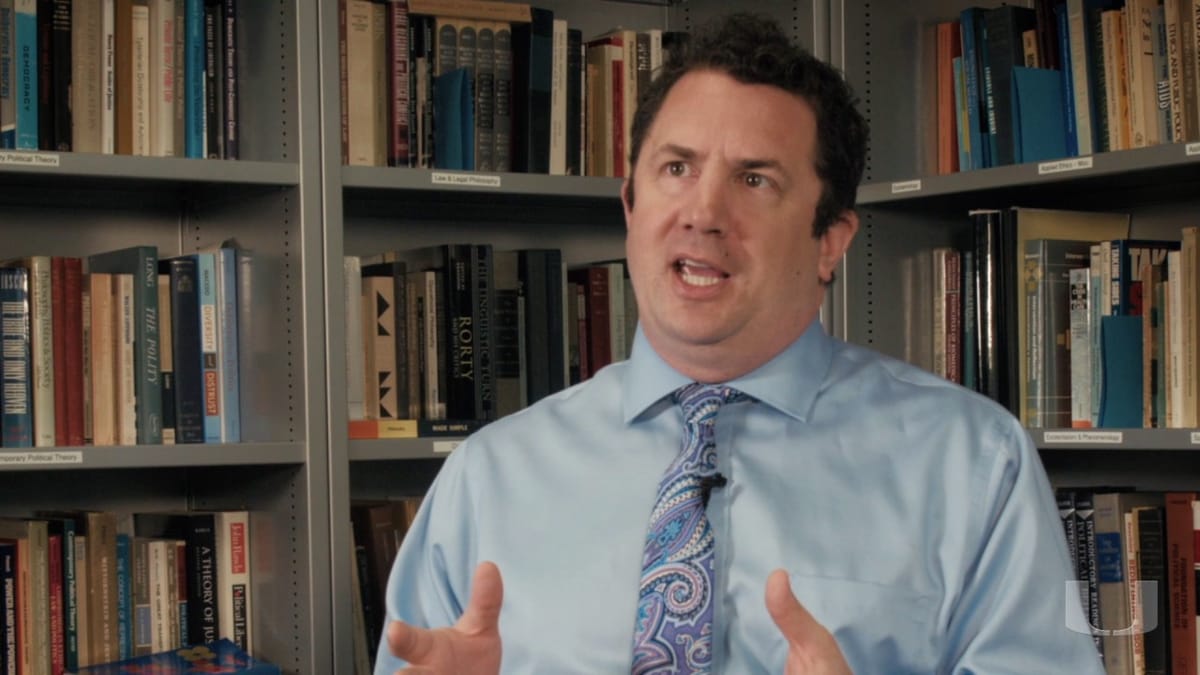
These are the words of Joseph Uscinski, Associate Professor of Political Science at the University of Miami.
I spoke to Joe for Webworm, and our conversation made me wonder if things aren’t quite as fucked up as they seem.
So I guess today’s newsletter is… hopeful, somehow?
Joe Uscinski wrote American Conspiracy Theories (an excellent book) and as you probably gathered from the title, he’s very passionate about conspiracy theories.
He’s a member of the University of Miami U-LINK team, which combats online extremist conspiracy theories, and also does a fuckload of survey work for the likes of the Pew Research Centre.
In short, he really has his finger on the pulse about what Americans believe.
And as debate raged about the possible identity of Q this week, I wanted to talk to Joe about how widespread the believe in QAnon actually is, and how worried we should be.
I wanted to know the scale of the problem.
I really like Joe. He’s well educated and opinionated — and he’s also a great speaker. Right now, he’s in hot demand. I accidentally Skyped him on the wrong day, and he sounded upbeat but also kinda exhausted. He’d just done six American press interviews in a row, most of them about QAnon.
When I reconnected, I really loved our conversation. I think my kiwi accent threw him a little, and there were a lot of laughs as we talked. The podcast version of this newsletter is really fun. He swears quite a bit.
In short — we kinda disagree on some things — but I knew we would.
He thinks the problem of people disappearing down conspiratorial rabbit holes is no worse than it’s ever been.
That it’s exactly the same.
Joe told me social media isn’t to blame. I struggle with this, but he’s smart and I wanted to hear him out.
We also agreed on a lot of things, including the bit where he yelled at me:
“This is a plea to the conspiracy theorists - make up something fucking new, so that I can actually give a shit at this point! Because it is so boring, oh my God!”
I found this conversation fascinating, and at times confronting. I hope you enjoy it.

Like all the content here on Webworm, this edition is possible thanks to subscribers. They fund the work here, and also get access to bonus newsletters and podcasts. If it doesn’t cause you financial hardship, you can sign up here to stay across future episodes:
You can consume our conversation in two ways: a podcast you can listen to (above), or a written version you can read (below).
Take your pick.
David.
Joe - you are a polls expert. Take it away!
Just to give you a rundown of the polls in this country, I will tell you the brief history of why I started polling QAnon, because it wasn’t even something I was paying attention to in mid-2018.
It got brought to my attention, largely from a little bit of online harassment that I got from these Q people! They went through all my pictures on Twitter and decided to make a collage suggesting I was a satanic sex trafficker.
It was the dumbest pictures they picked — and of course they found one of me wearing red socks, and the red socks mean you are a sex trafficker, or eat babies, or something like that.
At that point I thought, “OK, let’s see what’s happening here.”
And what happened very quickly in late July of 2018 was that some people wore QAnon tee shirts to a Trump rally in Tampa, Florida — my home state.
And because of that, QAnon got a tonne of media coverage, in all the major newspapers. So I decided I was going to run a poll in Florida. And I thought “why don’t I throw QAnon on here, and just see what happens?”
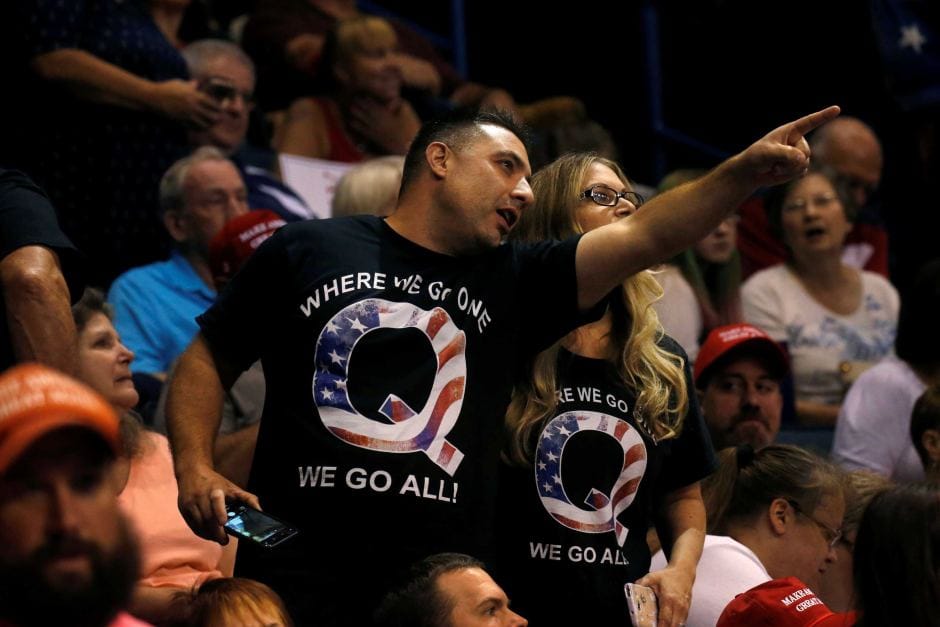
And a lot of people didn’t know what it was, and it was not rated very highly.
So we said “how would you rate the QAnon movement on a scale from zero to 100, where 100 is “you really like it” and zero is “you really hate it.”
It came out with about an average of 22. And to put that in perspective, it was about a point higher than where Floridians rated Fidel Castro! And if you know anything about Florida, it’s that we don’t like Castro here! So it was not liked.
But what was even more telling was that the average rating from Democrats and from Republicans were not different. So they both disliked it about equally.
And what predicted belief in QAnon was not being Republican or Conservative, but just having a conspiratorial world view. So this idea that QAnon is a far right conspiracy theory does just not hold water at all.
There is nothing conservative about it, except for positing Trump as a hero — but he is not a hero because he is Republican, but because he is an outsider.
I have repeated this poll in Florida just in June, and several other polls nationwide, and have found no growth [in QAnon belief] whatsoever.
So most people don’t know what this is, the vast majority of people don’t like it, and it’s not gaining in popularity.
However the headlines in all the newspapers are the exact opposite. They say “it is huge and getting bigger, it’s gone mainstream, it’s taking over American life, it’s far right…”
Of course, they never tell you what that means.

I mean I am reading a piece in the New York Times right now, and the headline says “The republican embrace of QAnon goes far beyond Trump”, that’s the kind of headline we see everywhere.
But it really doesn’t.
I mean maybe it goes a little bit beyond Trump, but it doesn’t go far beyond Trump.
So what is happening here? Are we seeing a huge disconnect between the reporting and the perception of what your polling numbers are actually saying?
Well the data is out there, I published my initial poll in the Washington Post, I followed up with my polls in the Washington Post, the Emerson poll is out there for anyone to see, the Pew poll is out there — and that made headlines!
So there is no excuse at this point for journalists to get this wrong. So they are doing it purposefully.
And I think some of them are starting to see, and to change their language, just enough to get away with the crap: “Oh, well, there are millions of QAnon accounts - and that’s growing…”
Right? And if you are not reading carefully… accounts aren’t people. Accounts are accounts, who knows if they are sincere, or real people, or if one person has 1000 accounts.
So some of this is, frankly, dishonest at this point. I would have forgiven them before, but they should know better.
And I don’t want to speculate on people’s motives — it may be that they are chasing clicks, by inciting this moral panic. It could be that the mainstream news legacy outlets have it in for social media, and are more than happy to attack them saying they are turning everyone into a nutcase, when in fact they are not.
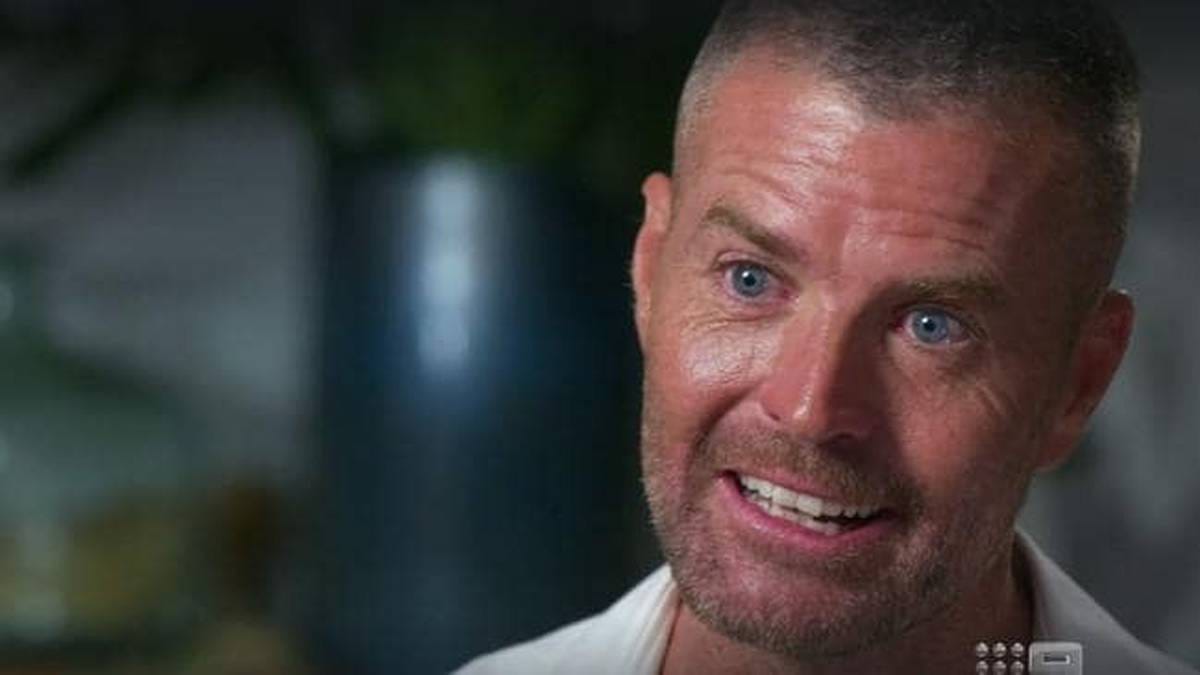
It could be that there is some political bias here, maybe it is easy for them to say “Republicans are a bunch of QAnon nutcases” and then ignore stuff like ANTIFA and stuff like that.
I think there is this thing at the moment where people are coming across the idea of a conspiracy theory for the first time, and they are panicking about it. I feel that in America, it’s been a part of its culture to have this way of thinking about things! That what you are told is not necessarily the truth. I mean, right back to the foundations of the country, it’s always been there. It just feels like perhaps there is this knee-jerk reaction to what we are seeing now.
I mean it’s true it’s always been there, but it’s also a media myth that the US is exceptional in this way. I would say Americans are exceptional in many ways, but conspiracy theories is just not one of them!
Polling, when you do it across countries… we are middling, at best.
If you read the news headlines, whenever a major newspaper will talk about conspiracy theories in whatever country, it’s always the people of that country who are the most conspiratorial!
All these claims are based on nothing, it’s all baloney.
And also when you read about “when is the time of conspiracy theories?” - journalists say it’s always “now, now. Now is the time.” And you can find headlines almost every year saying “this is the golden age, this is the time!”
But it can’t always be true.
I am just observing from New Zealand, but say we focus on COVID, there seems to be a lot of disinformation and misinformation that is fuelled by social media sending you along on an algorithm. Look at something like Plandemic, that documentary that was shared around so widely: how do you feel about the positioning of something like that as being “oh holy shit everyone is doing down the rabbit hole” — do you think that has been blown out of proportion?
Yes. Absolutely. This is the funny thing, having been polling on COVID conspiracy theories. I ran a poll in March, and another in June, and Plandemic placed in the middle of that, and was shared supposedly millions of times.
Yet — no difference in the conspiracy beliefs.
No difference.
And so it’s like we known a lot about how media affects people. We have been studying this for a very long time. For hundreds of years. And we have strong theories to explain this, and we have decided to throw this all out and just decide that everyone is a lemming, when it comes to internet conspiracy theories.
It is not the case that conspiracy theorising has gone up at all. It is not clear that conspiracy theorising has gone up due to social media. We may find in effect we may have people who already have strong conspiratorial world-views and they are going to search out what they want to find anyway.
And they are writing about it on their Facebooks walls…
Yeah. So the view is already there, right? Even when we look at polls of specific conspiracy theories over time, it is not the case that pre and post internet more people are believing conspiracy theories.
There may be less.
Essentially what you are saying is that during a pandemic, people that are already predisposed —
Well not even during a pandemic! Just put the pandemic aside for now, just in the age of the internet people will find what they are looking for.
And when this pandemic first started, I was thinking to myself “if I were to take people into a lab and to turn them into conspiracy theorists, and jack every input up to 11… the pandemic would be it!”
The economic uncertainty, the fear that comes from disease, an election, all sorts of stuff going on, social media, political elites engaging in conspiracy theories — everything is jacked up to 11.
And I haven’t really seen any major increase! I mean, there could be one and I just haven’t found it yet, but I am just not finding this!
What it tells me is just more evidence of what I have been seeing for a long time, is that this is largely a stable phenomenon.
COVID conspiracy theories are new, but only because COVID is new.
And if you remove “Bill Gates” from the conspiracy theories about him, you go back in time and just plug in “Soros”, “Rockefellers”, “Rothschilds”, “Freemasons”, whatever you want!
So you know, this is a plea to the conspiracy theorists: make up something fucking new, so that I can actually give a shit at this point!
Because it is so boring, oh my God.
It’s like “Soros all over again, are we still having this conversation?!”
Yeah — Soros, or some rich person trying to take over the world and they are going to put chips in our neck… I’ve fucking heard it, dude.
So look, we have this celebrity chef over in this part of the world — Chef Pete Evans — and he went and started with lots of posts about food, and over the last three months his Instagram is now your classic conspiratorial mess, with a lot of memes and crazy photoshopped images. If everyone has this baseline in the world of being susceptible to conspiracy theories, it does feel to me amplified by people’s presence on social media, and people seem to be going down that rabbit hole a lot easier.
It’s hard to know. And this is the thing: I think what we are doing a lot is confusing our ability to see and measure something, with the idea that that something is happening more often.
And confusing anecdotes with data.
And so you’d go back 30 years and there would be no social media, so you could not track people’s conversations. So you could not see what people were saying next to the water-cooler. But now you can.
There is this view like “how did people talk before Twitter?” and it’s like “they fucking talked!”
Rumours were going around long before social media, believe it or not.
Only a few months after the Kennedy assassination, 50% of Americans believed it was a conspiracy. By the mid 70s it was 80%. It’s only come down 35 points during the internet era.
So it’s sort of strange to say “they can travel further and faster than ever before” when technically, yes, in that I can put things online and they can be accessed in Thailand right now — but it doesn’t mean that anyone is accessing it and caring about it, or adopting it as a belief.
really good illustration of how brain worms can take over really, really fast:
— David Farrier (@davidfarrier) 10:28 PM ∙ Aug 20, 2020
Do you think the fact somebody who has an idea that is a bit out there — say, “COVID isn’t real” — that before, they would say that to their friends around the water-cooler and be shot down straight away, whereas now there can jump on Facebook and have access to a lot of other people who will back them up?
No, I think it’s the exact opposite!
Okay, talk me through this. This is interesting.
I read tonnes of articles all the time that are like “how do I talk to friends who believe in conspiracy theories” as if no-one knows how to do this.
So the assumption of your question is that everyone was always shooting down people’s conspiracy theories, and no-one does that on social media.
I mean it gets done on social media quite a bit. And it may be the case that social media is less hospitable to conspiracy theories than other forms of communication.
Just to bring up the mainstream media, it kills me they blame social media for this. Because they are some of the biggest players.
It also kills me that political elites start mounting a campaign against Facebook and Twitter, saying these spread conspiracy theories. It’s like “no, it’s the politicians who spread conspiracy theories!” They have the bigger bully puppet! I mean why does everyone think COVID’s exaggerated? “Gee, I dunno, maybe it’s because the president said it was?”
Maybe because radio personalities with massive syndicated audiences said it was?
Maybe because Fox news keeps saying it?
I was reading stories from the Washington Post about QAnon, meanwhile the other side of their mouth they are publishing all this UFO nonsense!
We all love a good Area 51 story! Look, there is no doubt a Facebook algorithm will push you down further down into a direction you are already looking in, like if I am watching a lot of Alex Jones, I will get pushed further into that zone.
But you’re already there! No-one is going to Alex Jones unless they are already there.
Well, say something softer — you are watching a Jordan Peterson video, a softer in, and then you are jumping in. I mean when you are talking about algorithms not pushing them in this direction, and not affecting them I struggle with that.
I think you would have a hard time convincing a person who does not have an Alex Jones worldview to accidentally fall into his website, and they go “oh yeah, the frogs are all turning gay!”
I am not saying it can’t happen — I imagine someone who is a blank slate who is willing to believe anything — but in that case, they will flip from Alex Jones to some other thing and believe that.
I don’t know how many of those people exist.

Do you sometimes feel like you are screaming into the void with your ideas?
I am always screaming into the void!
Look, you are very calm, but I know you are constantly talking to the press and come back to the same points.
Well it’s the same thing over and over. And the media, the journalists always get upset with me because I fuck their stories right away.
Because the only thing they have read is from the same media bubble they are in, right? So every interview I have done this week is on QAnon, and they will say “please explain to me why it is getting so huge” and I’m like “well no, it’s not” and they’re like “fuck!”
So, in a way this is a very heartening conversation because you are saying we are seeing the exact same number of people in the population are going to dive into this stuff as they ever did. Where do you see the problem lying, then?
I don’t think social media is turning people into conspiracy theorists. That view needs to stop. I don’t think that people are becoming more conspiratorial.
However even if this is stable, it is still a problem and we have to be honest about it being stable, and we have to be honest about where it’s coming from.
And it’s coming from people who have stable world-views, and that probably comes out of their socialisation, and it’s going to take a little more work. We can’t just give someone a link and it will change their worldview. It’s a tougher problem than we imagine.
And if we are going to start throwing blame, then there is a lot of blame that should be going around. There are members of Congress who should be blamed for spreading conspiracy theories.
Many members of Congress should be blamed for the advertising they put out which borders on that sort of stuff, and engages in misinformation. The speeches of our leaders involve misinformation, and sometimes conspiracy theories. If we are going to be even handed about it there is a lot of guilt to go around.
Yes, Trump engages in a lot of conspiracy theories. That is bad. But so did Bernie Sanders. Saying the one percent controls everything, I am sorry but that is a conspiracy theory. And if you were to replace the words “one percent” with anything else, you would get it.
So — it is easy to pick on a few sources for this, but once you open to your eyes you start seeing it everywhere. I mean the channel Animal Planet, it’s supposed to be about real animals. That’s what I thought. What is the biggest production they ever did? It was “we found a mermaid, and it washed up on the shore because the Navy is killing the mermaids…”
And the History Channel has Ancient Aliens...
Yes, also on Animal Channel, Finding Bigfoot. Guess what? They haven’t found him yet.
You go the mainstream news and there is often playing with conspiracy theories, going beyond the evidence. Whether it’s the Washington Post and the UFO stories, or — and I will say this — I am glad there was Trump Russia investigation, but a lot of the coverage went way beyond what the available evidence was saying, and there were a lot of theories getting popped up that were way beyond that was appropriate at the time.
And when the Mueller Report came out, it fell flat on its face.
And so it’s everywhere.
And a lot of the things that are problems now, like anti-vax theories — well, some of the big starts for the anti-vax movement is because one of the biggest journals in the world, The Lancet, decided to publish a terrible paper that was fraudulent, should never have been published, and it took them 10 years to take it down!
Maybe Oprah Winfrey, who brought Jennifer McCarthy on her show and gave her a mainstream voice to this nonsense. And Bobby Kennedy Jr who continues to push it, and Robert De Niro, and Jim Carrey. So you know, this is out there.
And you could take social media away tomorrow and it would not make one iota of difference.
It’s a big call, and an important call, and I find it confrontational when you say it, and it’s fucking fascinating.
Yeah, a lot of blame to go around.
It’s a much more complex topic than we think, and we can’t just point at Mark Zuckerberg and say “your algorithms are turning us into zombies” - it’s a much more nuanced situation we are in.
Please tell me that day that occurred in the past where we weren’t believing in conspiracy theories. Come on! When did that happen?
Point taken.
And this is the thing, I show people the data and then they have to pull this bullshit, and they do the exact same manoeuvring conspiracy theorists do: they want to hold onto their belief.
So when I tell people “we have been running polls on QAnon and it’s not getting bigger” they go “maybe polls aren’t appropriate in this instance!”
Fuck off!
And we don’t have any evidence the internet is driving people to this, or people have beliefs they didn’t have in the past.
“Oh, but it’s because it’s so easy to get now and it’s the groups!”
It’s like “no, screw off!”
Look, I don’t want to come across too dogmatic about it —
Oh you are!
Here’s the thing: new theories will be adopted over time and social media will have something to do with it, but it is largely convincing people who are already prone to being convinced of that particular theory.
I think that people would be a little slower in adopting some of these beliefs from not being on social. In New Zealand we have the Public Party and its lead by Billy TK, and he is into all the stuff: 5G is evil, COVID isn’t real, the UN has a big worldwide plan to depopulate the planet.
And he’s getting big town hall meetings that I would argue wouldn’t happen if there weren’t 20,000 people (which is big numbers for New Zealand by the way!) who had found each other on Facebook.
But they would have done it another way. And third parties have always existed, and people have found each other far before the internet.
So we have lots of evidence of political parties, and cults, and religions forming long before there was Facebook for them to find each other
Yeah, Scientology kicked off pretty well pre-Twitter right?
Yeah, everything kicked off! Christianity kicked off before it had a Facebook page! Billions of followers. So you don’t need any of this [social media] stuff for this to happen.
And any insinuation they do: were you born yesterday? Do you have amnesia?
Do you realise all these things we have in the world are long standing institutions that formed long before Facebook?
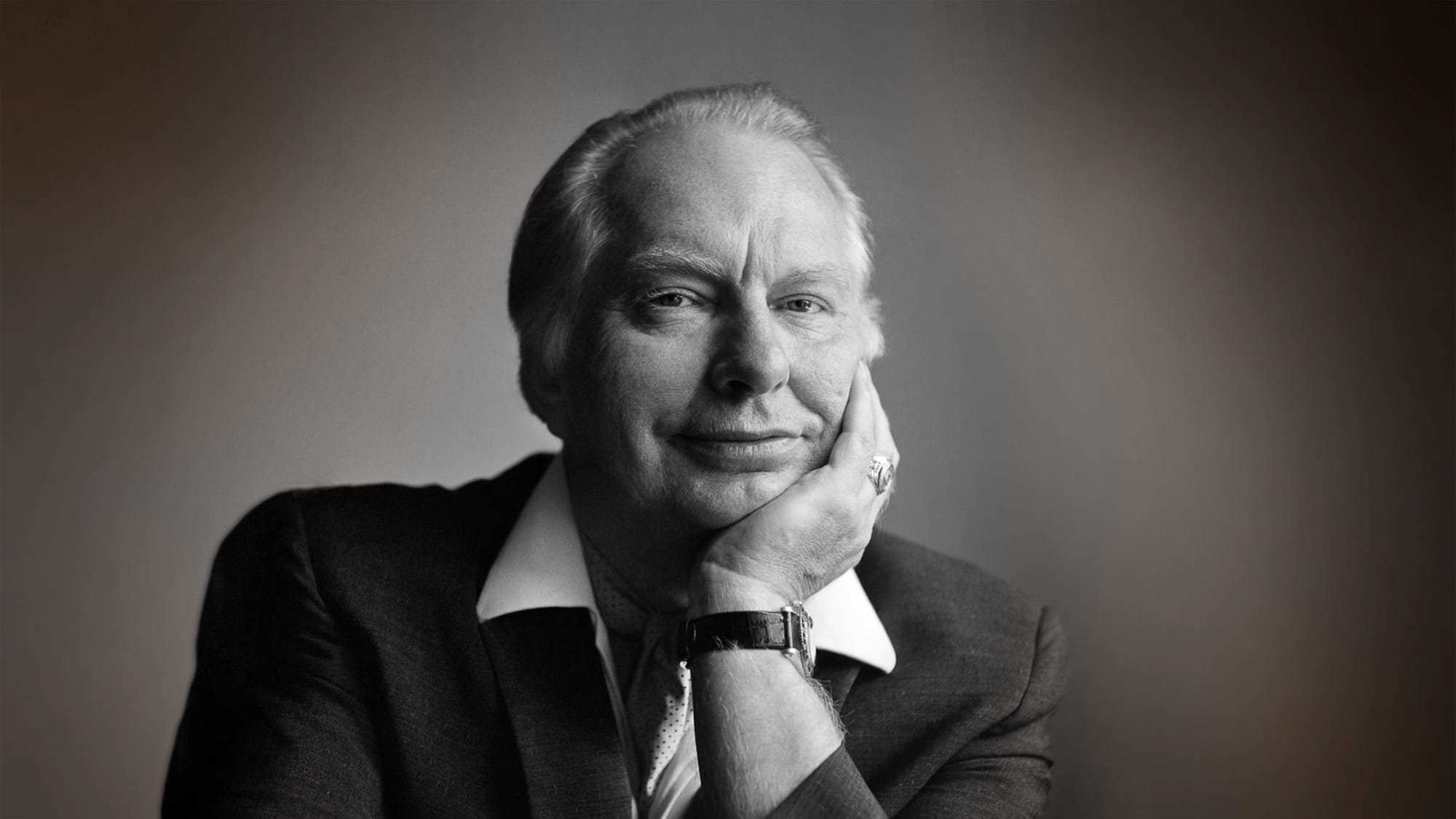
Well look, I appreciate this conversation. And I think it’s a point of view that is not represented in the media at the same level as the opposing view.
That’s true!
And I think you are going to be continuing to shout, and I respect you for that.
Yeah and continue to shout and be ignored, yeah!
If I am sitting over here in New Zealand and I am petrified of these theories flung around on my Facebook feed and how damaging that can be, what are you freaked out by? What should I be worried about?
What should you be worried about? I mean here is what worries me in general right now: I prefer beliefs to be tied more to the truth.
So I think we all have a job to do when it comes to fighting against these beliefs.
And while I will disagree with a lot of people about the origin of these theories and how and why they spread, I will agree that they are a problem. And I am fully invested in solving that problem.
And I think we will do a better job if we have an understanding of the origin of these beliefs instead of just blaming Facebook for it.
But most certainly I am on board with anyone who will take reasonable measures in pushing back.
So in that case, banning Facebook pages, putting restrictions on social, those may end up being counterproductive.
I am not in favour of government censorship of this stuff, I don’t think it helps in any meaningful way, because largely these things are going to be constrained to those people already disposed to it anyway. And all you are doing is proving to them that the government is out to get them!
So there is something for all of us to do.
We need to find ways to change beliefs, to change world-views. Maybe that comes in the way of critical thinking courses earlier on in the educational process.
Instead of shovelling facts down people’s throats out of textbooks, teach them how those facts come to be accepted as knowledge and how they did they get into the textbook? How do we generate knowledge?
Those things need to be front-loaded into education earlier on.
Thanks, Joe. It’s a lot. It’s a lot to think about!
Phew. It’s a lot to digest, I know. I hope you enjoyed this newsletter — whether you read it, or listened to it.
David.

